
Select Page
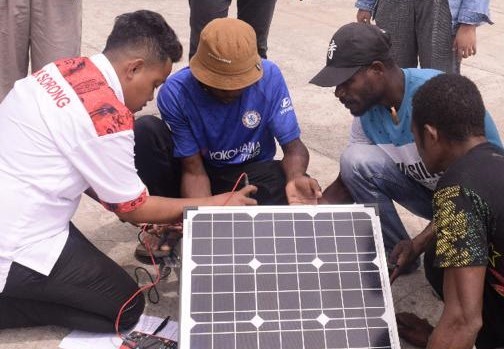
Indonesia comprises more than 18,000 islands and vast rural areas. In recent years, the electrification rate in the country has increased significantly to about 97%, but the rates in rural and disadvantaged regions are still lower than the national average, especially in the Papua and Nusa Tenggara regions. Considering the high level of solar irradiation and geographic conditions, the NPO Indonesia is promoting the adoption of off-grid solar photovoltaic (PV) systems to provide electricity to rural villages, empower local communities, and raise their productivity.
Inspired by a previous APO demonstration project in Indonesia, in which a demonstration PV system and training curriculum for solar energy utilization was developed in Serang, the NPO Indonesia proposed another pilot PV site in Sorong Regency, West Papua province, to demonstrate how rural villages could utilize solar energy resources and generate electricity to improve their standards of living and productivity levels.
The mission of an APO Demonstration Company (DMP) project is to develop model organizations that showcase good practices of productivity improvement. With capacity building, documentation of improvement processes, and result dissemination, this program seeks to demonstrate good practices for other organizations to learn from.
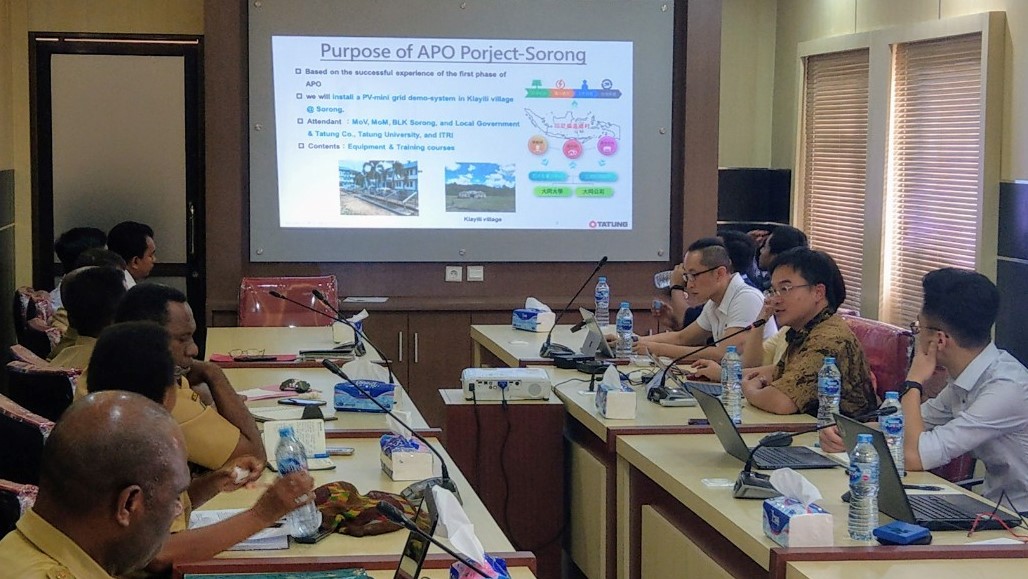
This DMP project was a collaborative effort involving several key entities: the Industrial China Productivity Center, Technology Research Institute (ITRI) of the ROC; Tatung Company (TC); Tatung University (TU); Ministry of Village, Development of Disadvantaged Regions and Transmigration; Vocational Training Center (VTC) of Sorong Regency; Ministry of Manpower; and Sorong Regency Government of Papua province. The ITRI, TC, and TU offered consultancy services and supplied PV solar demo systems and equipment.
The project was implemented in three stages: planning; implementation; and dissemination. All stages of the project were carried out through close collaboration and consultation with all parties involved to ensure the ownership and sustainability of the project.
The planning stage, lasting two months, consisted of:
The implementation stage, lasting eight months, involved:
The dissemination stage, lasting two months, included:
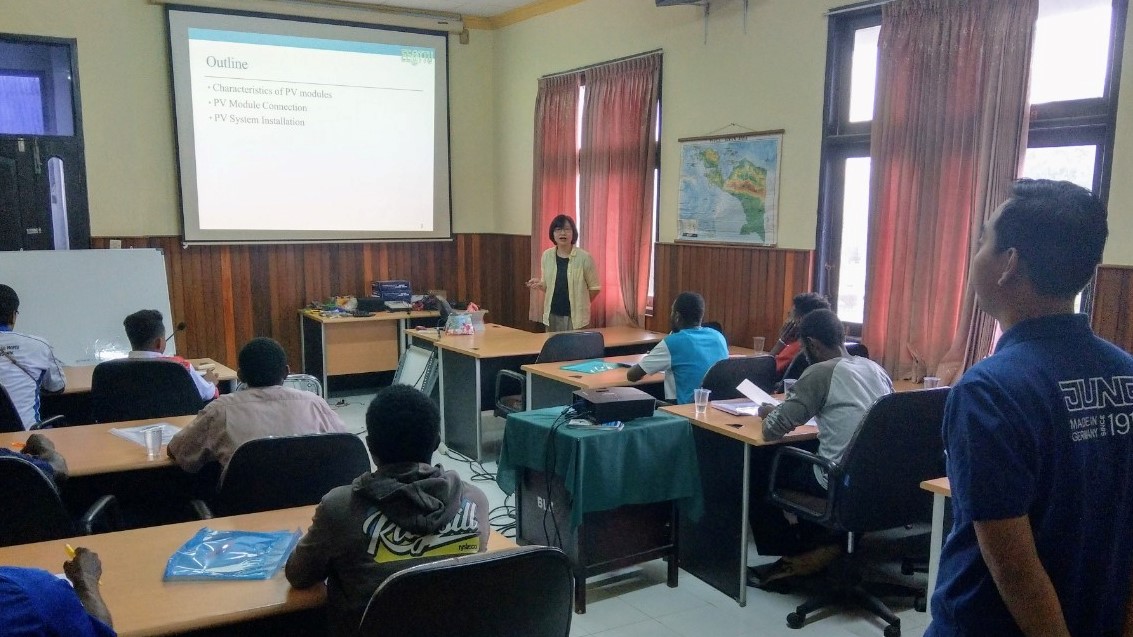
The COVID-19 pandemic significantly hindered the implementation of the Sorong DMP project, with international travel restrictions barring experts from the ROC, causing delays in onsite installation, training, and increased equipment shipping costs. Fortunately, the NPO Indonesia adeptly coordinated virtual training sessions and engaged former seed teachers from the VTC Serang to ensure continued progress. Drawing on previous partnerships from the 2018–19 DMP project with the VTC Serang, local experts bridged the training gap when the Sorong DMP project stalled, eventually leading to successful completion in 2021.
Since 2020, the NPO Indonesia, VTC Serang, VTC Sorong, and Ministry of Village have held multiple training sessions and dissemination workshops as initiatives to strengthen the capacity of locals. Practical manuals and guidelines to facilitate the training were also produced.
In early 2022, an off-grid solar PV system was successfully installed in Klayili district. Using the knowledge and skills gained from the DMP project, local residents have been maintaining the solar PV instrastructure and equipment, ensuring a stable source of electricity for the region.
Access to a stable electricity supply has improved the productivity and efficiency of local government agencies in serving and improving the lives of the community in Sorong.
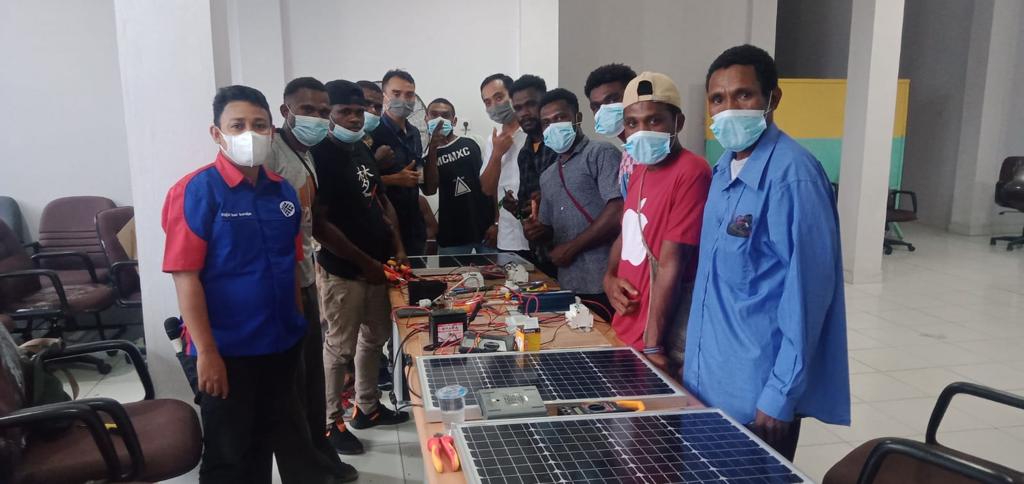
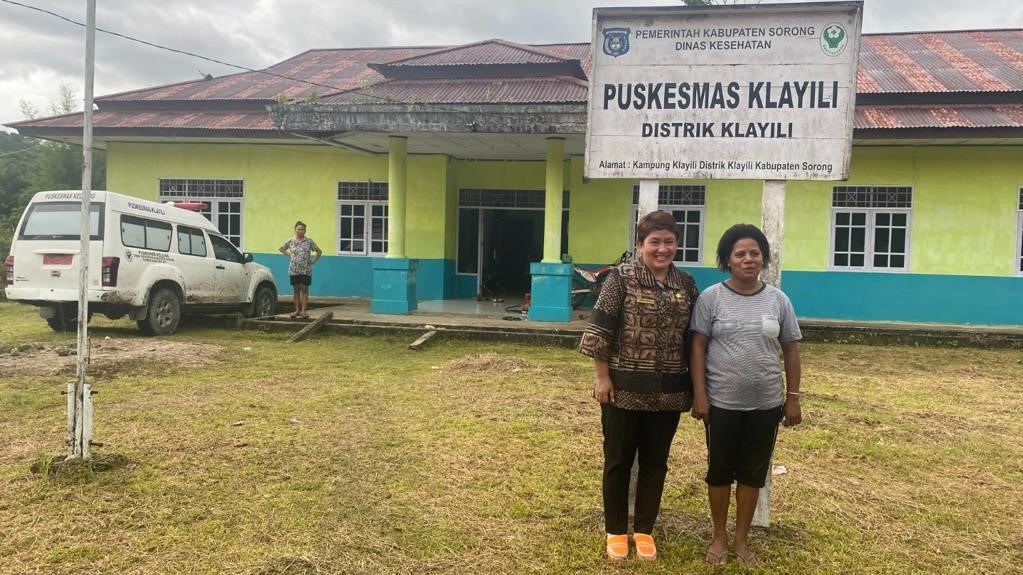
Indonesia, with its rapidly expanding economy and unmet electricity demand, stands at the brink of a renewable energy revolution. Earlier attempts at solar energy adoption were stymied by maintenance issues and unreliable providers. However, the APO initiative and collaboration among APO members promise a brighter, sustainable future with shared knowledge and human capability development.
This DMP project is a testament to the promising path Indonesia is taking to raise rural productivity with green energy technologies as sustainable power solutions. Future undertakings should prioritize innovative training delivery, potentially blending virtual with onsite methods, ensuring comprehensive skill acquisition.
Source: The APO Footprint: Mapping Success One Step at a Time